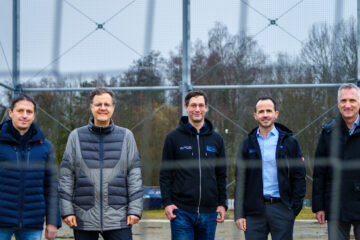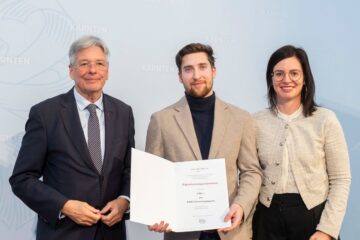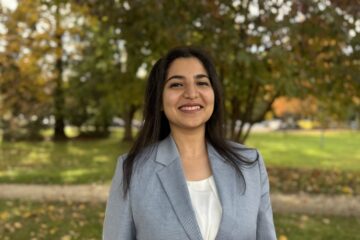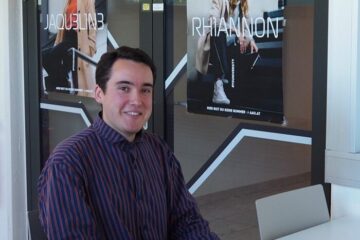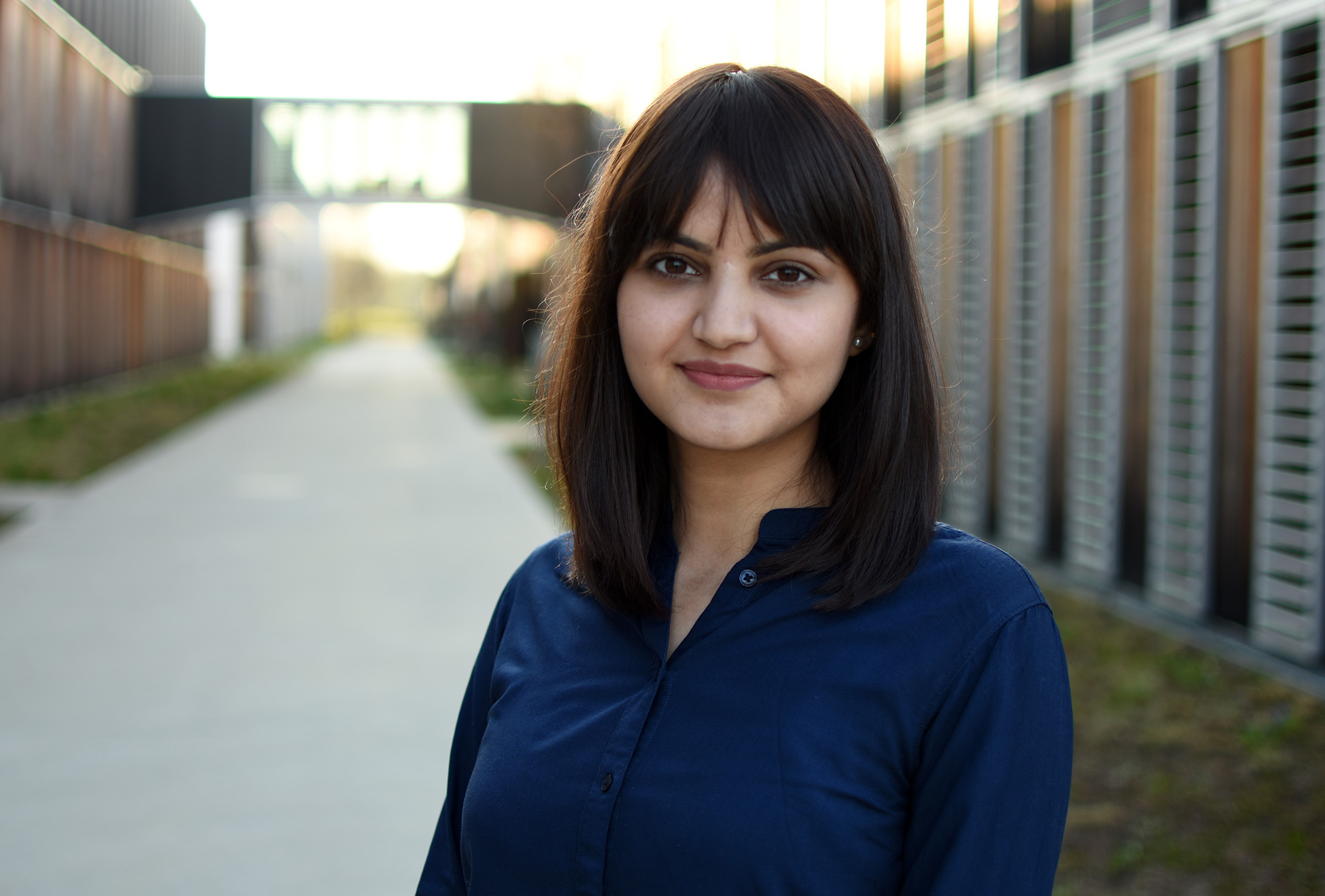
If two musicians were to play at the same concert venue simultaneously, it would not only sound terrible, but it would also be impossible to understand the song lyrics. The same is true whenever huge volumes of data is exchanged between sensors nodes. Mahin Atiq is working to predict the associated interference that arise in wireless networks.
The deployment of wireless devices is already quite advanced: Industries frequently feature environments that require monitoring or automatic control. Additionally, robots equipped with sensors are deployed in these areas to deliver coordinated task performance. Sensors such as cameras or thermometers record data, which are exchanged across wireless links. However, where multiple devices share the same confined space and many of these communicate over the same channel, interference often arises as a result of simultaneous data transmissions; just like the example of the concert given by uncoordinated musicians. “This means that the intended recipients don’t receive what they are supposed to receive, “ doctoral student Mahin Atiq explains. She is part of Christian Bettstetter’s research group at the Institute of Networked and Embedded Systems.
Mahin Atiq has set herself the goal of successfully predicting these types of interference. Consequently, at the start of the interview, she poses the following question: “Do you want to know as much as possible about the future?” In doing so, she addresses a desire shared by many; not least, so that they may adjust to whatever lies ahead. Being able to look into the future in order to ensure the smoothest possible functioning of the technology is important for this researcher: The more network designers know about possible emerging interference, the better they can prepare for the eventuality. She believes if successful, interference prediction will serve as a major building block in designing wireless networks. When we asked her how she can look into the future, she told us: “To be able to make a prediction, it is necessary to understand the properties of a system and also take a look at the past.” Using Stochastic Geometry from the field of Mathematics, Atiq studies interference, in order to understand how it behave across time and space. She has almost concluded the comprehensive literature review; next, she will continue to work on developing the technology to perform interference prediction.
Her research group offers the ideal supportive environment, as she tells us: “When I came here in 2015, I had also applied to other European universities. During the personal interview in Klagenfurt I soon realized: These are the people I want to work with.” Mahin Atiq has lived in cities with over a million inhabitants all her life: Having grown up in Pakistan’s capital city, Islamabad, where she also completed her Bachelor’s degree, she then moved to Seoul, South Korea’s capital city, to study for her Master’s degree. Doesn’t she get bored in Klagenfurt? “Until now, I have been used to living in big cities that are generally known to offer a high degree of anonymity. In contrast, the sensation of being part of a much smaller number of people was entirely new for me. It opened up the possibility to learn new things about myself. I was also able to establish contacts very quickly; especially in the positive environment at the Institute.” For her, Klagenfurt features a colourful variety of people, who appear more open than elsewhere. The language barrier was also soon overcome: “I quickly realized that most people can speak English, so I can survive here.” Meanwhile, Atiq can manage her daily life in German as well.
From an early stage, it was clear to Mahin Atiq that she wanted to be a researcher. One of her uncles is a renowned scientist in the field of environmental radioactivity. Even as a child, she was already aware of his passion for the discovery of new findings. Atiq knew exactly what she wanted, and with the support of her parents, who both have Master’s degrees in science, she has steadily worked towards her goal. In this particular family environment it was natural for her to choose the Engineering Sciences. It was far more common for her to hear: “ You can do this!”, than being told that something is not possible. Building upon this strong sense of self-confidence, she also looks ahead to the future: She has just started to teach and is excited to find out whether she will enjoy conveying knowledge to students.
Mahin Atiq is certain that she wants to make the world a better place; when she says this, there is no doubt that she will contribute her part. Amongst other things, she cares passionately about sustainability, which is set to gain relevance in all areas of science. When Atiq speaks about her work, words such as ‘inspiration’ and ‘passion’ are frequently used. There is no hint of hesitation or doubt. She is not only focused on the future of interference, but on the future of a world, which is increasingly determined by technology. Similarly, Mahin Atiq’s desire to know about her own future is guided by the absolute certainty that it will be a good future. Because it is being shaped by Atiq and people like her.
A few words with … Mahin Atiq
What career would you have chosen, if you had not become a scientist?
I never get bored of baking and making sweet treats. I think I would have become a baker and opened my own bakery.
Do your parents understand what it is you are working on?
I would say to some extent at this point in my work, as the tools I am using in my research are quite abstract to them.
What is the first thing you do when you arrive at the office in the morning?
Read what I wrote in my notebook before leaving office the day before, to know where I need to start today.
Do you have proper holidays? Without thinking about your work?
I have become a strong believer of taking holidays, as I find myself more motivated and excited to work after my vacations. I try my best to take a week off every six months to recharge myself. I would tell the truth here, that my work never leaves my thoughts even on vacations.
What makes you furious?
Lazy people
What calms you down?
Talking about what’s worrying me
Who do you regard as the greatest scientist in history, and why?
There have been so many great scientist in the history. I greatly admire the Greek mathematician Archimedes, for his approximation of pi (π), which I use in my research every day.
Why do so many people fear the technical sciences?
I think the fear comes from underestimating one’s self. I truly believe in the capability of human mind to learn any skill given the willingness to work for it, as nothing comes easy.
What are you afraid of?
Losing my loved ones
What are you looking forward to?
Learning new things, finding new truths

